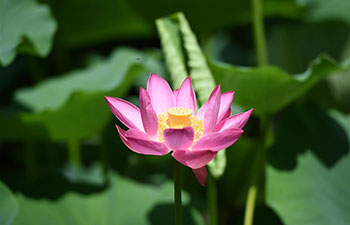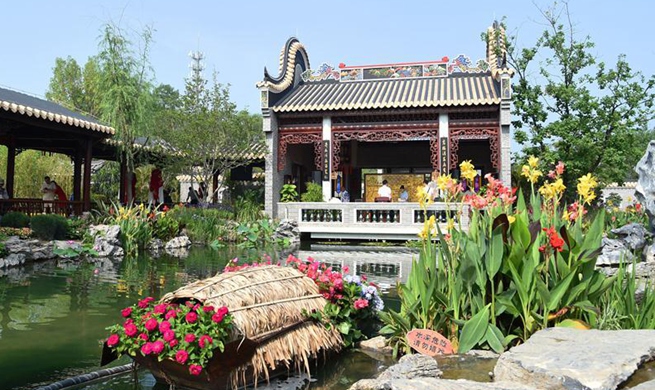VIENNA, July 11 (Xinhua) -- It is not a traditional Chinese opera complete with all the stylistic conventions, including the face-paints, the costumes and the symbolic movements.
It is not a classical western opera either, which is always about mythological characters or fictional love stories. It is a contemporary Chinese opera based on what really happened in history.
It is the story of John Rabe, the "Oskar Schindler of China", who saved tens of thousands of lives during the Japanese invasion and occupation of the former Chinese capital Nanking between the end of 1937 and early 1938. It is about love -- not romantic feelings but human sympathy and compassion in times of great need, in the face of life and death.
Drawing on German composer Johann Sebastian Bach's tunes, "The Diaries of John Rabe" takes the audience in the Ronacher Theater in Vienna back to that dark period in Chinese history. The Japanese military stormed the city of Nanking, set up a bloodbath, raped women, butchered soldiers and civilians indiscriminately. Most foreigners have left, but Rabe, a German business representative of Siemens, chose to stay.
A bold middle-aged man wearing a pair of glasses, Rabe looked no super-hero. He had his doubts too. He wanted to go to Shanghai to reunite with his wife. And he was naive to believe that the Japanese would spare the Chinese soldiers who had laid down their arms.
What he did was nothing but heroic. With the few remaining foreigners, Rabe set up a security zone, marked with swastika flags for protection, as Japan was an ally of Adolf Hitler's regime. In his house and garden Rabe housed 600 refugees. In total, the security zone saved more than 200,000 Chinese from starvation, cold, or atrocities committed by the Japanese military.
Rabe was called back to Germany in early 1938, taking with him a detailed diary comprising more than 1,600 pages. He was arrested by the Gestapo, the official secret police of Nazi Germany, and forbidden to speak of the massacre. He died in 1950, lost to history -- until his diaries were rediscovered by the late American-born Chinese journalist Iris Chang doing research in the mid-1990s for her book "The Rape of Nanking".
When the performance ended with a hauntingly beautiful violin solo, the audience was overwhelmed, offering a long and loud applause. The mood was a bit heavy, more about respect, solemnity and reflection than joy.
"This is quite something," said Franz Patay, former rector of the Music and Arts University of the City of Vienna and CEO of the theatrical company Vereinigte Buhnen Wien, which owns the Ronacher Theatre. "It is a strong piece, opening the eyes of Europeans who are not aware of this part of history, of what cruel things have happened in that part of the world."
"In enlarges consciousness about history, enhances your wisdom about what happened in the past," he said.
"This is very different from the opera as we know it. This is about real people and real stories, which I can relate to," said a member of the audience who introduced herself as Lily.
The performance in Vienna on Wednesday night concluded the opera's European tour.













